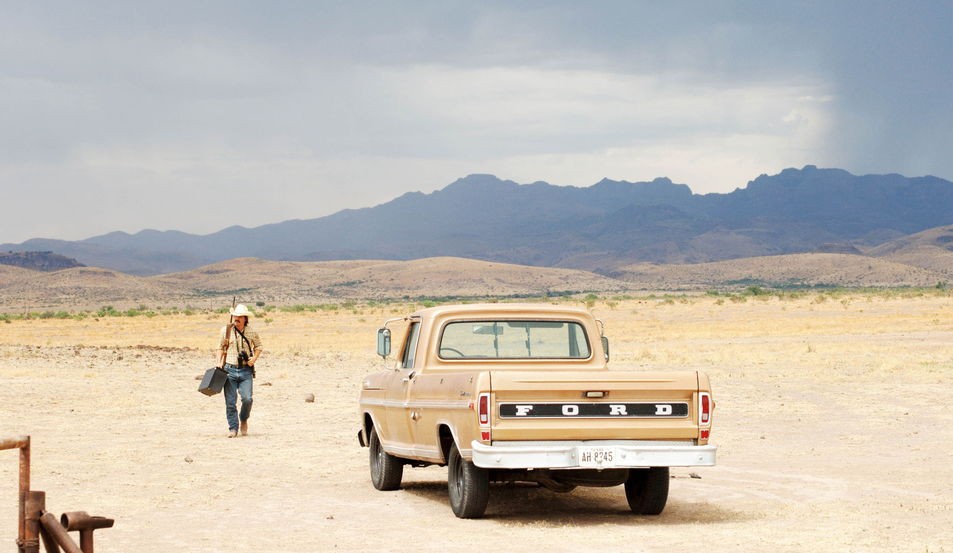2 min to read
No Country for Old Men: A Neo-Western That Redefines the Genre

Cormac McCarthy’s 2005 novel No Country for Old Men, later adapted into a film by the Coen Brothers, isn’t your typical Western. It belongs to the neo-Western genre—stories that borrow the traditional Western setting and themes but infuse them with modern values, moral ambiguity, and a darker worldview.
The story unfolds in 1980s West Texas, where hunter Llewelyn Moss stumbles upon the aftermath of a drug deal gone wrong. Among the carnage, he finds a briefcase full of money—money that belongs to powerful interests. Taking it sets off a violent chain of events.
Anton Chigurh, a ruthless hitman with a twisted code of justice, is dispatched to recover the cash. At the same time, Sheriff Ed Tom Bell, a weary lawman from another era, tries to track both Moss and Chigurh—hoping to resolve the situation before more blood is spilled. The corporations behind the deal send yet another killer to retrieve the money, while a Mexican cartel joins the hunt for their cut. As the manhunt spreads across the Texas landscape, Moss fights to stay alive and keep the money hidden.
Unlike classic Westerns—where the hero triumphs through grit and guns—No Country for Old Men turns the formula upside down. Moss doesn’t survive, and Chigurh walks away, untouched by justice. Sheriff Bell, despite his efforts, remains mostly on the sidelines and fails to stop the violence. There’s no final shootout. Instead, the story ends with a quiet, haunting monologue by Bell, reflecting on the past and his place in a world he no longer understands.
The true anchor of the story is Anton Chigurh—a chilling figure who operates by his own moral logic, as brutal as it is arbitrary. Even those who think they understand him are powerless to stop him. He’s not just a villain—he’s a force of nature, representing a kind of chaos that can’t be reasoned with or contained.
By the end, it becomes clear that Sheriff Bell is one of the “old men” the title refers to. In the opening monologue, he reflects on how times have changed—and so has crime. Throughout the story, as he follows Chigurh’s trail of destruction, Bell struggles to make sense of the violence. Ultimately, he feels out of place in this new reality. Defeated, he retires—not in peace, but in quiet resignation.
In the end, No Country for Old Men is a haunting, razor-sharp dismantling of the Western. Its stark themes, unforgettable characters, and uncompromising moral darkness linger long after the last page—or the last frame. Both the novel and the film are must-experiences for anyone drawn to stories that defy convention and refuse to fade from memory.
Comments